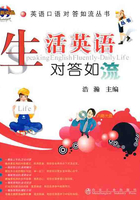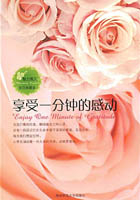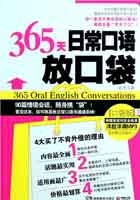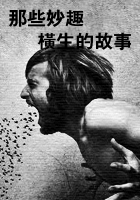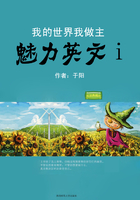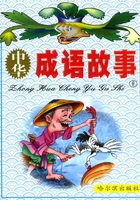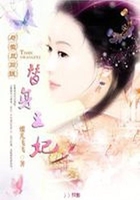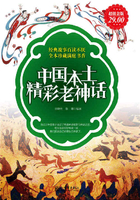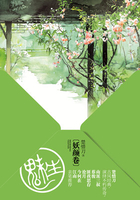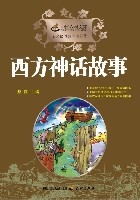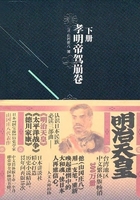萨拉和我礼貌地岔开了她哥哥的话题。我忽然记起,很多年前的报纸上曾有一篇文章,作者阐述了她对更新的看法。她用墙上的层层壁纸来比喻我们掩藏真实的自我,她说一层一层地剥掉那些伪装的外表,我们就看到了最里层的真我面目。
我告诉聚精会神的小女儿:“我们经常需要‘蜕皮’,要脱掉身上那些装饰。当我们成熟之后,就发现某些东西不需要也不必要了。这条蛇不再需要这张皮,也许是蛇觉得它太僵硬、太多皱纹了;也许是它觉得,这张皮穿在身上不再像以前那么光滑了,蜕下一层皮就像买了一件新衣服一样。”
当然了,我确定这一解释不能得到真正的博物学家的认可,但萨拉理解了我的意思。在我们的交谈中,我知道萨拉开始领会“更新是进步的一部分”这个道理,即便只是细微地理解。她领会了:我们需要好好审视自我、房间、功课,注重创造性以及精神追求;明白了我们需要保留什么,摆脱什么。我小心地指出:这是自然过程,并非被迫的。
我解释说:“蛇喜欢自己的皮时,就不会蜕掉它。这是它们成长的自然结果。”
萨拉说:“爸爸,我明白了。”接着便从我腿上跳下去,拿着蛇皮跑开了。
我希望她能记住这个道理,那就是:我们长年累月地把自己层层包围在人情世故中,为了寻找掩藏在底下的真正自我,我们需要检验判断这些外衣,当认识到有些东西是没有价值的、不必要的或者是有缺陷的,就把它们剥去;或者,最好把那些剥去的东西保存下来,以提醒激励我们不断创新,精神上不断完善。
我们长年累月地把自己层层包围在人情世故中,为了寻找掩藏在底下的真正自我,我们需要检验判断这些外衣。
1. Everything they see for the_________ time is elementary to their sense of beauty and creativity; they see only merit and excellence in the world_________ educated otherwise.
2. “We often_________ to shed our skins, those coatings and facades that we cover ourselves with.” I said to my now absorbed daughter. “We outgrow some things and find other stuff unwanted or_________. This snake no longer needs this_________. It is probably too stiff and crinkly for him and he probably doesn’t think he looks as smart in it as he once did.Like_________ buying a new suit.”
3. “Snakes don’t peel off their skirl_________ they feel like it.” I explained. “It_________ as a natural consequence of their_________.”
1. 事物往往不是表象所能掩盖的,除了我们所见的,还有一些更深层次的东西。
____________________________________________________________________________________________________________
2. 正如往常一样,最初的话题会导致接二连三的新问题,直到我们所谈论的与起先的话题毫不相干。
____________________________________________________________________________________________________________
3. 罗伯特诙谐地说:“因为它们不喜欢做自己,它们想要变成别人。”
____________________________________________________________________________________________________________
1. ...and said that by peeling away those layers one by one, we see the underlying original beneath.
one by one:一个接一个地
____________________________________________________________________________________________________________
2. ...and see what we need to keep and what we need to cast off.
cast off:丢弃;放开,使自由;脱下
____________________________________________________________________________________________________________
伟大与渺小
Random Thoughts
约翰?博因顿?普里斯特利 / John Boynton Priestley
This matter of other people’s learning and accom-plishments has been worrying me for some time. I never read the life of any important person without discovering that he knew more and could do more than I could ever hope to know or to do in half a dozen lifetimes. To begin with, unless these people chance to be obvious invalids like Stevenson or Chehov, they are always tremendous athletes, with surprising strength, powers of endurance, and so forth.
They could all walk and run and climb our heads off, even when they were 70. Then they all have the gift of tongues. You never catch a glimpse of them sitting down to learn a new language, not even running an eye over its irregular verbs, yet it is admitted that they speak any number with an astonishing fluency and purity of accent. They never confine themselves to one science, but are inevitably masters of several. The big book of Nature they know by heart. Only the other day I was reading an account of a great novelist, a most sophisticated and subtle person, and was told that he knew the name and habits and history of every wild flower and plant and tree and bird in the country. Nor is that all. There is not one of these bigwigs who is not ( I quote the customary phrases ) a sensitive and accomplished musician, or an extraordinarily fine amateur water-colorist, or the possessor of a magnificent prose style. We are always told that, had circumstance been different, their talents were such that they need only have given their serious attention to one or other of these arts to have procured for themselves lasting and perhaps worldwide reputations. So runs the legend of the eulogists.
I am baffled. How is it done? I ask the question again, my voice rises to a scream of envy and vexation. Consider what is involved in this matter (so lightly touched upon and dismissed) of music or water-color painting or fine writing, what years of serious application, of drudgery at the keyboard, the easel, or the writing desk. It is one thing to strum on the piano, as you and I do, faking the left hand passages as we go along, or to daub a few patchy water colors, or to paste on to clumsy prose some old spangles of rhetoric, and it is quite another thing to be an accomplished musician or artist or writer. If the first were meant, I could understand it; but the second and as a mere recreation, too! And then to add the athleticism, the sciences, the tongues, the natural history! I am bewildered and crushed. The very idle rumour of fellow-creatures so wonderfully gifted makes me dwindle in my own estimation to the size of a gnat.
一直以来,对别人的渊博学识及深厚造诣,我感到很忧虑。只要随便读一读某位重要人物的传记,我就总会发现,他的学问和才能就算我活六辈子也休想学到和做到。第一个理由是,除了像史蒂文森或契诃夫那样明显体弱多病的人以外,他们总是像卓越的运动员一样,有着惊人的气力和耐力。

